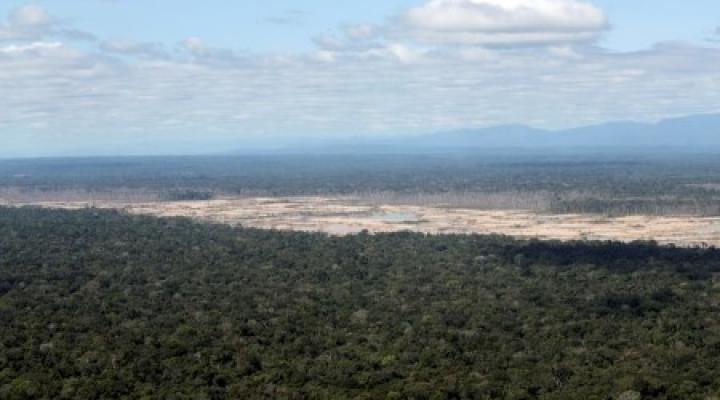(Reuters) – A supplier to brands including Nestle, Kellogg’s and Colgate has been farming palm oil on deforested land in one of the best-preserved areas of Peru’s Amazon rainforest, an environmental group said in an investigative report released on Wednesday.
Peru-based supplier Ocho Sur and related companies deforested more than 130 square kilometers (50 square miles) in Peru’s Ucayali region, with most of the destruction occurring since 2012, the nonprofit Environmental Investigation Agency (EIA) said in the report. That is an area more than twice the size of Manhattan.
Palm oil can be found in consumer products from shampoo to chocolate bars.
Ocho Sur in a statement to Reuters said that nonprofit organizations have sought to damage its reputation with false accusations, and that it had all necessary environmental permits since acquiring the land in 2016.
The company said it has not expanded its plantation area since, and reforested areas without forest coverage and maintains protected Amazon areas.
“Ocho Sur backs its commitment to biodiversity and preserving the forest,” it said.
Ocho Sur is a privately held company backed by North American investors, according to its website. In a statement last year, the company denied having cleared any additional land.
Investigations by nonprofit organizations into food companies have scrutinized the often-murky connection between deforestation, a major contributor to climate change, and the food on consumer’s plates.
Since 2020, nonprofit groups such as Greenpeace and Mighty Earth have linked supermarkets, grains traders and meatpackers to Amazon deforestation as these organizations seek to pressure businesses to source sustainably.
Colgate-Palmolive CL.N and Kellanova K.N, the maker of Kellogg’s brand products, in separate statements said they would investigate the allegations made in the new report. Nestle said it investigates allegations as they arise but declined to comment on Ocho Sur specifically.
The deforestation in Ucayali is encroaching on the most biodiverse portions of the Amazon rainforest, near where it meets the Andes mountains, according to Yadvinder Malhi, a University of Oxford ecologist who was not involved in the EIA report.
“This is probably the most successful engine of evolution on Planet Earth,” Malhi said of the region.
Some 300 species of trees can be found on a single plot of native rainforest there, Malhi said. The region also is home to endangered Peruvian spider monkeys and threatened giant anteaters.
The Western Amazon is too wet and the soil too poor to be suitable for cattle ranches or soy farms that have ravaged Brazil’s Amazon to the east. But those conditions are favorable to palm oil trees.
The deforestation alleged in the report would have been illegal at the time it was carried out, as the companies involved failed to complete a proper soil study and obtain a land use change permit, according to EIA.
Peru’s Congress in January retroactively legalized past deforestation across the country.
Colgate-Palmolive said it was not previously aware of the allegations. The company said one of its direct suppliers made some spot purchases from Ocho Sur in 2022. Ocho Sur is not listed on Colgate-Palmolive’s latest 2023 supplier disclosure. The company said it will ask its direct supplier investigate the allegations.
Nestle said it investigates allegations as they arise, and that suppliers must either rectify a situation or risk losing Nestle’s business.
Kellanova said it does not have a direct relationship with Ocho Sur, but it would engage with its suppliers that did.





